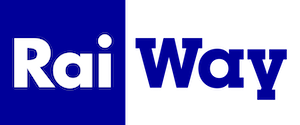A pragmatic approach based on data, efficiency and environmental responsibility.
Reduce, reuse, regenerate: the value of circularity
Rai Way promotes a circular economy model that combines innovation, responsibility and efficient use of resources. The goal is to reduce waste generation, optimise the life cycle of equipment and enhance the value of materials through recovery and reuse practices.
Our Actions

Responsible management of technological waste
In managing WEEE (Waste Electrical and Electronic Equipment), Rai Way applies strict criteria of efficiency, safety and transparency.
Through an integrated system of collection, recovery and digital traceability, the Company ensures the correct treatment of materials and their reintegration into production cycles.
Activities include:
- Collection, selection and treatment of WEEE through qualified operators and consortia;
- Recovery of reusable components and proper valorisation of secondary raw materials;
- Adoption of operational procedures compliant with European environmental regulations.

A commitment across the supply chain
Circularity at Rai Way extends beyond corporate boundaries, involving the entire value chain.
Suppliers and partners are integral to an operational model that incorporates ESG criteria, sustainable design and shared responsibility.
This commitment translates into tangible practices throughout the supply chain, including:
- Integration of environmental requirements in supply contracts;
- Engaging partners in the sustainable management of materials and waste;
- Control and traceability through digital ESG reporting tools.
Towards a sustainable industrial model
Through circular material management, smart maintenance, and collaboration with partners and communities, Rai Way contributes to the country’s ecological transition, with the aim of transforming its infrastructure into a concrete example of innovation and sustainability.



